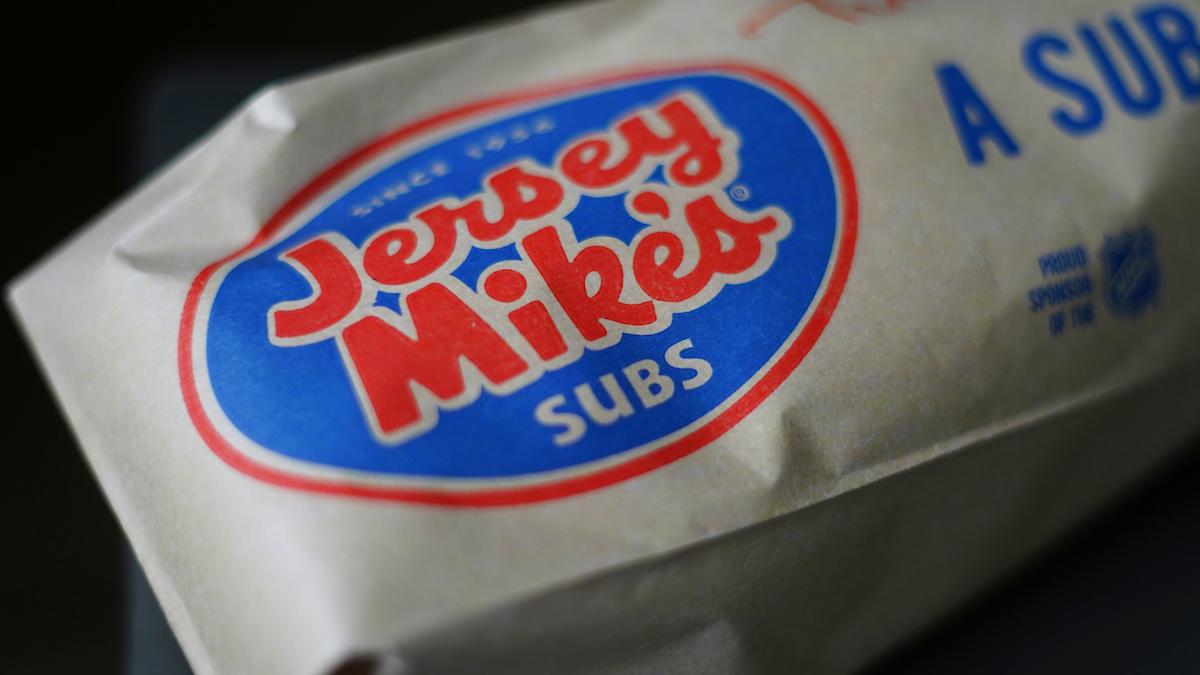
Jersey Mike’s sub in paper bag – PJ McDonnell/Shutterstock
You may not realize it, but many of your favorite food and restaurant chains are owned by massive investment firms. Take Jersey Mike’s, for example. What started as a small New Jersey sub shop in 1956 is now backed by Blackstone, one of the largest private equity firms in the world. And subs aren’t the only thing on Blackstone’s plate. In 2024, it also picked up Tropical Smoothie Cafe.
Opened in 1993 on Florida’s panhandle, this fast-casual restaurant franchise serves up delicious smoothies, wraps, flatbreads, acai bowls, and more. Customers rave about their icy, thick, and refreshing blends. This includes favorites like the fruity Bahama Mama with coconut and white chocolate and the tangy and tropical Blimey Limey.
Tropical Smoothie Cafe is also known for its fresh and healthy grab-and-go meals that cover breakfast and lunch. Fan favorites include the Chicken Pesto Flatbread, the Chipotle Chicken Club, and the PB Banana Crunch Flatbread. That buzz has fueled explosive growth, with more than 1,500 locations in the U.S. and more on the way through its partnership with Blackstone.
Read more: 8 Items To Avoid Ordering At McDonald’s
Duncan Hines cake mixes – Anatoliy Tesouro/Shutterstock
Back in 2007, Blackstone made big moves by acquiring Pinnacle Foods Group Inc. They produced a bunch of brands, including Duncan Hines, Hungry Man, Vlasic, and Mrs. Buttersworth’s. In 2013, Blackstone took Pinnacle public and gradually exited its stake. A few years later, in 2018, Conagra bought Pinnacle outright. Today, Blackstone holds a controlling stake in Trilliant Food & Nutrition, which produces coffee and tea products. In 2024, Blackstone looked into selling Trilliant, but no deal went through.
Blackstone isn’t the only major player investing in restaurant chains and food brands. Roark Capital owns Inspire Brands, the parent of Arby’s, Dunkin’, and Sonic. JAB Holding Company owns Panera Bread, Krispy Kreme, and Peet’s Coffee. It turns out, food, especially fast-casual restaurants that have room for expansion, is a popular investment. But not everyone’s happy about these changes. Many point to what happened to Red Lobster as a cautionary tale of how a big investment can go too far. Critics argue that investors looked after their own pockets instead of the brand. Golden Gate Capital stripped its assets by selling off real estate and saddling the chain with heavy debt and rent costs. This forced Red Lobster to go bankrupt.
The Kraft Heinz split is another example, showing how aggressive cost-cutting can backfire. In the end, it’s often the customer who feels the effects through price hikes, smaller menus, or lower quality. Whether Blackstone’s food bets will pay off for investors, or the brands themselves, remains to be seen.
Read the original article on Tasting Table.
Disclaimer: This news has been automatically collected from the source link above. Our website does not create, edit, or publish the content. All information, statements, and opinions expressed belong solely to the original publisher. We are not responsible or liable for the accuracy, reliability, or completeness of any news, nor for any statements, views, or claims made in the content. All rights remain with the respective source.
